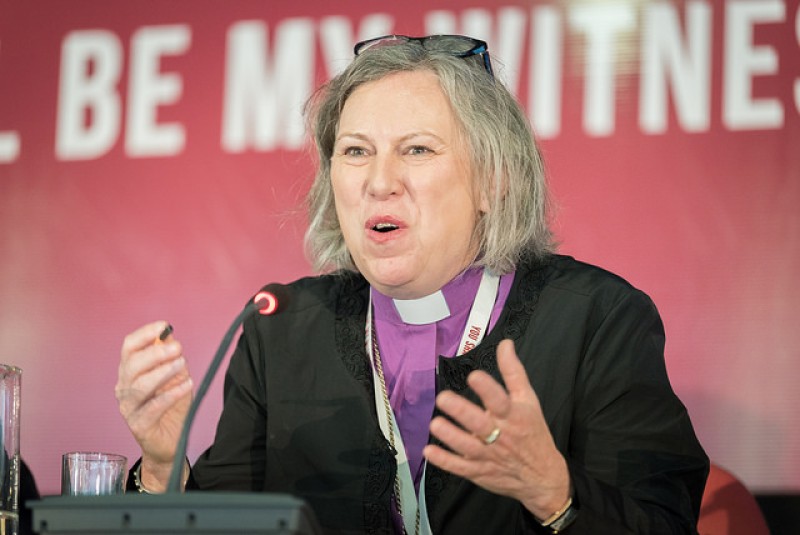By Klaus Rieth
“Europe is more than the 28 states of the European Union…hence it is good, and a visible sign, that we have come to Serbia and Novi Sad with our General Assembly,” said Rev. Petra Bosse-Huber, bishop for ecumenical relations of the Evangelical Church in Germany (EKD), on Sunday, 3 June, at the General Assembly of the Conference of European Churches (CEC).
She was speaking on a panel with the Rt Rev. Justin Welby, archbishop of Canterbury, on the topic of “Christian presence and witness in the future of Europe”. His Eminence Metropolitan Emmanuel from France, an Orthodox bishop who is also a CEC Vice-President, read a message to the General Assembly from His All-Holiness Bartholomew, the Ecumenical Patriarch of Constantinople.
“Yet the cracks running through Europe are unmistakable,” Bosse-Huber continued. “They are seen not least in the UK’s leaving the EU, in the refugee ‘crisis’, the argument about necessary EU reforms, the reintroduction of border controls in the Schengen area, the increase in authoritarian and illiberal policy above all in central and eastern Europe, and in the upsurge of nationalism and populism.”
Young people need exchanges across borders
“At the same time,” Bosse-Huber continued, “the credibility of Europe as a stronghold of human dignity, freedom, democracy, equality and respect for human rights is suffering increased damage.” Yet young people, in particular, need this borderless Europe very urgently, she added: “They experience Europe as enabling encounter and exchange across national borders.” In this context Bosse-Huber came out strongly in favour of expanding the EU’s Erasmus+ programme.
CEC is the right body to build bridges and enable contacts, she claimed. “It is an accomplishment of CEC to have made the diversity of church voices visible and audible.” As churches we have different demands and ideas, but we must at the same time underline “that we intend to move and shape things together”.
Argument must not be at the expense of unity
Bosse-Huber went on to say that church families, too, regularly argue and struggle for the right way forward. Yet it has to be clear, despite all disagreement, “that argument must not be at the expense of unity and that we must strengthen what we share across borders.”
It is inherent in Christian religion “to be a driving force and a source of commitment in Europe,” Bosse-Huber stated.
The concern should not be only to represent national interests, she said. Instead, the churches should see their mandate as “connecting people across borders. Giving assistance for refugees and migrants, and protecting their lives, is an inalienable part of Christian life”.
Bosse-Huber, urged that in the run-up to the European elections, “people on the ground should talk about Europe and not leave the important questions of the future to politicians and experts in Brussels. People must be involved in the debates about the future political decisions and must feel that their opinion is taken seriously.”
The EKD is therefore advocating for citizens’ dialogues to be held on the future of the EU. “After all, the only way to prevent political apathy is for people to feel that their problems are heard and perceived. Through these consultations, church congregations can become a place of encounter and discussion across the boundaries of opinion”, she said.
Asked about the rise in populism in Europe, Bosse-Huber replied, “When others get louder and more filled with hate, we Christians must get quieter and more friendly. It is part of the Christian stance not to answer hate with hate.”
In the discussion about painful memories of the war in the region in the 1990s, Bosse-Huber remarked that, in Germany too, many wounds were still open after reunification and many people in eastern Germany had a feeling of injustice. “If we want to change anything sustainably in our living together, we must not leave aside the past and the pain but remember them as we build a common future,” she said.
For high resolution photos please click here
